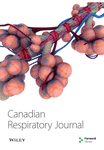Improving Medical Communication: Skills for a Complex (And Multilingual) Clinical World
Abstract
It has been reported that suboptimal communication represents the largest source of preventable error during acute medical care. Because a significant proportion of ongoing care relies heavily on verbal communication, it is incumbent on clinicians to develop, hone and maintain these skills in the interests of their patients and, at the same time, contribute to a more reliable and patient-focused health care system. This review briefly discusses why communication matters, practical strategies from both inside and outside clinical medicine, the implications of poor translation and the state of medical communication in Canada.




